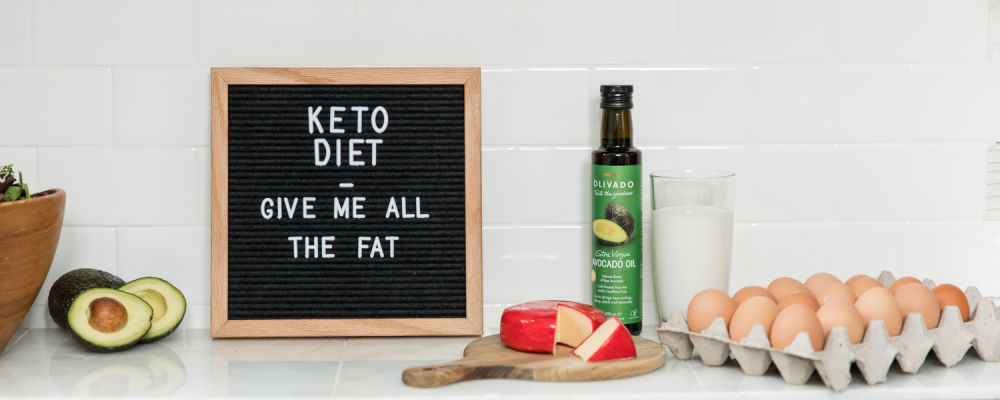Introduction: Breaking the Common Myth
For years, it was believed that athletes needed large amounts of carbohydrates to achieve optimal performance. However, modern science and practical experiments have proven the exact opposite. Today, world-class athletes are at their peak performance on the keto diet, from soccer players to marathon runners.
The real question is not, "Do they agree?" but, "How do we make the most of this integration?"
Understanding the needs of the athlete's body:
Energy sources in the body:
1. Traditional glucose system:
- Duration: 1-2 hours of intense training
- Problem: Quick depletion, need for constant replenishment
- The result: energy fluctuations, "hitting the wall" in long races.
2. Effective ketone diet:
- Duration: Long hours of stable performance
- Feature: Constant and continuous power supply
- The result: stable performance, greater endurance, faster recovery.
Scientific Evidence: Keto and Athletic Performance
Amazing recent studies:
2016 Study - Elite Runners:
- Professional marathon runners included
- Result: Keto-trained athletes burned 2.3 times more fat.
- Surprise: Their performance didn't decline, but in some cases it improved.
2017 Study - Endurance Athletes:
- 20 endurance athletes for 12 weeks
- Improvement in: Body composition (less fat, more muscle)
- Faster recovery after exercise
- Energy level stability
What happens scientifically in the body of a ketogenic athlete:
Fat Adaptation:
- Week 1-2: Adaptation period, performance may temporarily decrease
- Week 3-4: Beginning of improvement, increased fat burning efficiency
- Week 6-12: Optimal performance, exceptional endurance
Physiological benefits:
- Increased mitochondria: the power plants of cells
- Improved muscle oxygenation: Better performance with less oxygen
- Reduce inflammation: faster healing, fewer injuries
Types of exercise and keto:
✅ Sports that benefit most from keto:
1. Endurance sports:
- Marathon and long-distance races
- long-distance cycling
- long-distance swimming
- Triathlon
Why? These sports rely more on sustained energy than quick bursts.
2. Aesthetic sports:
- bodybuilding
- gymnastics
- martial arts
Why? Keto helps reduce body fat while preserving muscle.
3. Strength sports (with modifications):
- weight lifting
- Power lifting
- CrossFit
⚠️ Sports that require greater caution:
High-intensity, short-term sports:
- Enemy (100-400 meters)
- basketball
- hockey
- boxing
Reason: These sports rely on the anaerobic system, which prefers glucose.
Solution: Targeted or cyclical keto approach.
Types of keto for athletes:
1. Standard Keto (SKD):
- Carbohydrates: less than 20g per day
- Suitable for: Endurance sports, beginners
- Period: 2-3 months for full adaptation
2. Targeted Ketogenic Diet (TKD):
- Method: 15-30g of carbohydrates before exercise
- Suitable for: High-intensity training, weight lifting
- Goal: Quick energy for exercise while staying on keto.
3. Cyclical ketosis (CKD):
- Method: 5-6 keto days + 1-2 high carb days
- Suitable for: Bodybuilders, Advanced Athletes
- Timing: Refuel on rest days
Ketogenic sports nutrition:
Pre-workout (30-60 minutes):
For standard keto:
- Bakery 8 Keto Toast with Almond Butter
- a cup of black coffee or green tea
- 1 tablespoon MCT oil (optional)
For targeted keto:
- Bakery Keto Snacks 8 + 15g Fast Carbs
- 1 small banana or 2-3 dates
- Water with electrolytes (mineral salts)
During exercise (for 90+ minute workouts):
- Water with electrolytes (mineral salts: sodium, potassium, magnesium)
- Diluted MCT oil (for quick energy)
- Avoid: Sweetened sports drinks
Post-workout (recovery window):
Within 30 minutes:
- High-quality protein: 20-30 g
- Healthy fats: avocado, nuts, olive oil
- Electrolytes (mineral salts): Replace lost through sweat
Full meal (60-90 minutes):
- Bakery 8 Keto Muffins with Natural Cheese
- Green salad with olive oil
- Animal protein (chicken, fish, meat)
Bakery 8 products for athletes:
🏃♂️ Our ideal products for athletes:
Keto toast:
- When: Pre-workout meal
- Why: Low carb, sustained energy
- How to: Toasted with natural butter or avocado
Keto sandwich:
- When: Post-workout meal
- Why: Rich in fiber and protein for recovery.
- How to: With natural cheese or bacon
Keto muffins:
- When: Snack between workouts
- Why: Convenient size, easy to carry and eat
- How to: With nuts or natural butter
Keto cake:
- When: After strenuous exercise as a healthy reward
- Why: Satisfies sweet cravings without breaking keto.
- How to: Small portion with green tea
Training program for the ketogenic athlete:
Weeks 1-2: Adaptation period
- Exercise intensity: 60-70% of maximum
- Duration: 30-45 minutes
- Focus: Aerobic endurance exercises
- Nutrition: Strict adherence to keto, drinking plenty of water with electrolytes
Weeks 3-4: Building Strength
- Exercise intensity: 70-80% of maximum
- Duration: 45-60 minutes
- Focus: A blend of endurance and strength
- Nutrition: Adding pre- and post-workout meals
Weeks 5-8: Optimal Performance
- Exercise intensity: 80-90% of maximum
- Duration: 60-90 minutes
- Focus: Sports-specific exercises
- Nutrition: Precise customization based on exercise type
Practical tips for the ketogenic athlete:
Electrolytes Management - The Key to Success:
What are electrolytes?
They are mineral salts dissolved in body fluids that carry an electrical charge. They play a vital role in muscle contraction, nerve signal transmission, and fluid balance in the body.
Essential salts and their daily needs:
- Sodium: 3000-5000 mg daily - regulates blood pressure and prevents cramps
- Potassium: 3000-4000 mg daily - essential for muscle contraction and heart function
- Magnesium: 300-400 mg daily - supports muscle and nerve function and improves sleep
Signs of successful adaptation:
- ✅ Stable energy throughout the day
- ✅ Not feeling hungry for long hours
- ✅ Deep and comfortable sleep
- ✅ Fast recovery after exercise
- ✅ Improvement in body composition
Signs of need for modification:
- ❌ Constant fatigue after a month
- ❌ A clear decrease in performance
- ❌ Frequent muscle spasms
- ❌ Sleep disorders
Real athlete success stories:
Zach Bitter - Marathon Runner:
- Achievement: American record in 100 miles
- System: Keto for 3 years
- The result: exceptional endurance, faster recovery.
Luboš Švátek - Quadruple:
- Achievement: Weightlifting Records
- Diet: Targeted Keto
- The result: more power, less weight.
Sami Inkinen - Triathlon:
- Achievement: World-class triathlon performance
- Diet: Keto + Intermittent Fasting
- The result: stable performance for long hours.
Common mistakes and how to avoid them:
❌ The first mistake: impatience
- The problem: expecting immediate results
- Solution: Give your body 6-12 weeks to adapt.
❌ The second mistake: neglecting electrolytes
- Problem: Cramps, fatigue, decreased performance
- Solution: Monitor and replace mineral salts daily.
❌ The third mistake: not enough protein
- Problem: Loss of muscle mass
- Solution: 1.2-1.6 grams of protein per kilogram of weight
❌ Mistake 4: Ignoring timing
- Problem: Eating wrong before/after exercise
- Solution: Thoughtful meal planning based on your workout schedule.
Weekly plan for the ketogenic athlete:
Monday - Strength Training (Upper Focus):
- Breakfast: Keto toast + eggs + avocado
- Pre-workout: Black coffee + MCT oil
- Post-workout: Keto muffin + protein shake
- Lunch: Chicken salad with leafy greens
- Dinner: Salmon + Broccoli with Butter
Tuesday - Low-intensity cardio:
- Breakfast: Keto sandwich + natural cheese
- During exercise: Water with electrolytes (mineral salts)
- Post-workout: mixed nuts
- Lunch: Beef + Grilled Vegetables
- Dinner: Keto Cake (small portion) + Green Tea
Useful supplements for ketogenic athletes:
Basics:
- MCT Oil: Quick Energy
- Electrolytes: Sodium, Potassium, Magnesium (essential mineral salts)
- Vitamin D3: Bone and Muscle Health
- Omega-3: Reduce inflammation
For applicants:
- Beta-hydroxybutyrate (BHB): exogenous ketones
- Creatine: Muscle Strength and Size
- Caffeine: Energy and Focus
Conclusion: Balance is key.
The answer to the question, "Athletes and keto: Are they compatible?" is a definite yes , but with conditions:
✅ Keto is ideal if:
- Do endurance sports
- Looking for stable energy
- Want to improve your body composition?
- Be patient to adapt
⚠️ It needs modification if:
- Do high-intensity sports
- Need quick energy bursts
- Participate in upcoming competitions
At Bakery 8, we understand the diverse needs of athletes. Our keto products are designed to give you the sustained energy and rapid recovery you need to achieve your athletic goals.
🌐 Visit our website: getbakery8.com
📞 WhatsApp: 0536780417
📍Riyadh, Kingdom of Saudi Arabia
📦 Order via delivery platforms: Jahez, HungerStation, Local Stores, and Keita
Start your keto fitness journey today!
📚 Scientific sources:
- Volek, J. S., et al. Metabolic characteristics of keto-adapted ultra-endurance runners. Metabolism , 2016; 65(3):100-110.
- Burke, L.M., et al. Low carbohydrate, high fat diet impairs exercise economy and negates the performance benefit from intense training. Journal of Physiology , 2017; 595(9):2785-2807.
- Webster, C. C., et al. The Effect of a Ketogenic Diet on Exercise Metabolism and Physical Performance in Off-Road Cyclists. Nutrients , 2016; 8(7):422.
- Phinney, S. D., et al. The human metabolic response to chronic ketosis without caloric restriction. Metabolism , 1983; 32(8):769-776.
- McSwiney, F. T., et al. Keto-adaptation enhances exercise performance and body composition responses to training in endurance athletes. Metabolism , 2018; 81:25-34.
- Zajac, A., et al. The Effects of a Ketogenic Diet on Exercise Metabolism and Physical Performance in Off-Road Cyclists. Nutrients , 2014; 6(7):2493-2508.
- Wilson, J.M., et al. The effects of ketogenic dieting on body composition, strength, power, and hormonal profiles in resistance training males. Journal of Strength and Conditioning Research , 2020; 34(12):3463-3474.
- International Society of Sports Nutrition. Position Stand: Ketogenic diets for athletes. Journal of the International Society of Sports Nutrition , 2021; 18:27.


